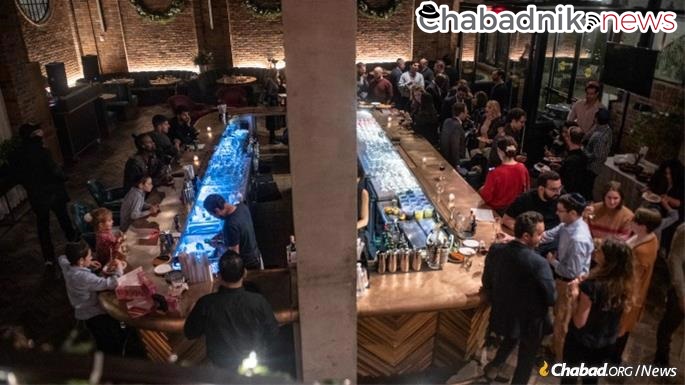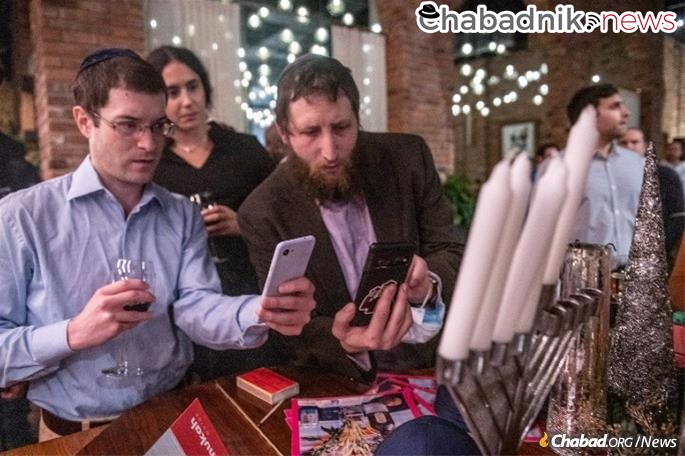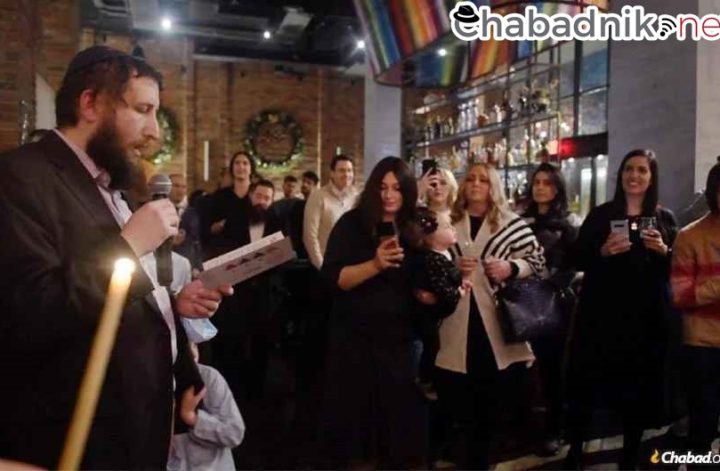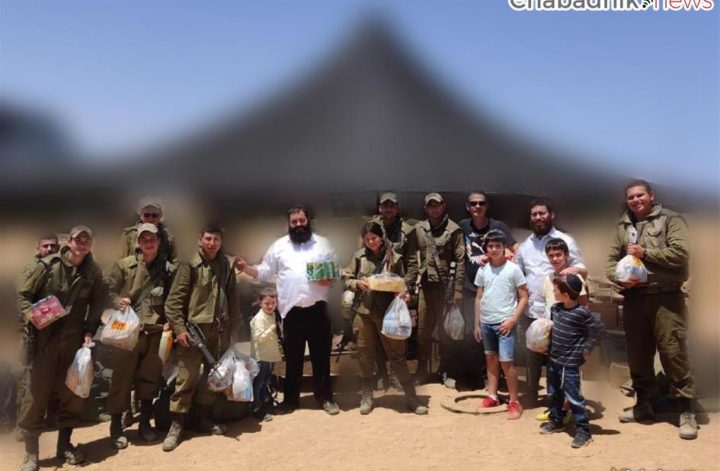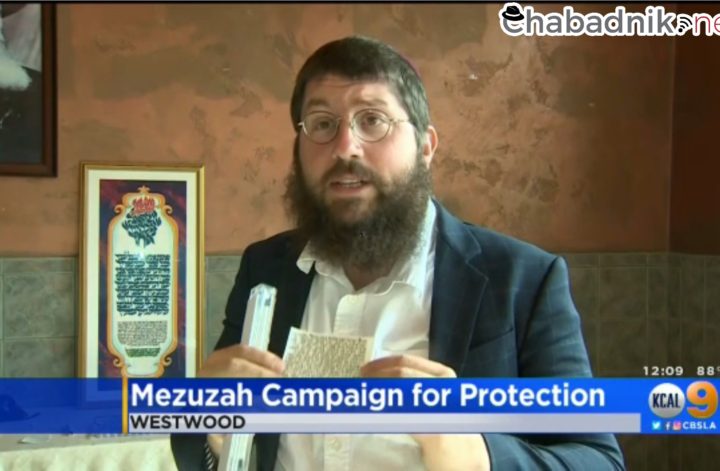A Chassidic designer created the digital menorah which blends Judaism and cutting-edge technology
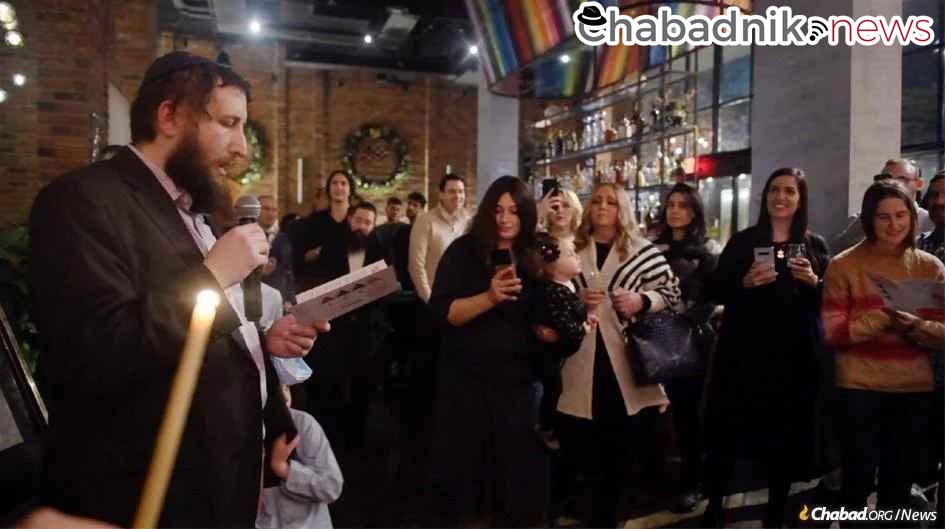
At the chic Williamsburg Hotel in Brooklyn, N.Y., on the fourth night of Chanukah, two worlds came together, blending the latest in ultra-modern technology with the menorah’s timeless glow. The eclectic celebration was hosted by Tech Tribe, an affiliate of Chabad Young Professionals for Jews in tech and digital media, led by Rabbi Mordechai and Chana Lightstone. The event, which was co-hosted by Heritage Equity Partners, featured the first ever NFT menorah, essentially a digital art file listed for purchase on the Polygon Blockchain.
In layman’s terms, that means the menorah is a certified work of digital art—one that can be uniquely owned, saved, and sold online.
NFT’s have become something of a flashpoint online. Considered by some as part of the next phase of the Internet and dubbed as part of “Web3,” others tend to roll their eyes at what they see as a fad.
The creators, however, were chosen to find transcendence in the medium—embedding in the NFT the ability to create a fully-functional real-world menorah.
The NFT menorah, designed by Chassidic digital artist Yoni Chanowitz, who said he was looking to create something that had a “cohesive story, a mood, and a perspective.” The project was relatively unique in the digital world of NFTs by including an STL file containing the blueprints for 3D printing the menorah, allowing the buyer to not only own an exclusive digital file but then print it for real-life use.
Somewhat tongue in cheek, the page promoting the event notes that it is inclusive to all sides of the NFT discourse. “Like NFTs?” they write. “You’ll get one! You’ll love this event. Hate NFTs? We’ve got jelly doughnuts. You’ll love this event!”
The QR code to view the menorah was featured at the Chanukah celebration, where the Williamsburg Hotel’s creative industrial-chic style menorah was lit by Lightstone. Anat Katz, Attachéfor Economic and Trade Affairs in Israel’s Consulate General in New York, was honored with lighting the shamash and spoke to guests.
“The NFT menorah was super cool,” said Kim Zivari, an engineer at Uber.
Zivari, who has worked on futuristic-sounding projects such as the Uber Copter and autonomous aircraft for Boeing, was drawn to the idea of an NFT menorah and actually purchased it. “Using technology such as NFT for Judaism is really exciting; it’s my two worlds converging,” she enthused, noting that the event also was an opportunity to connect with like-minded Jews in the tech industry.

Zivari met Lightstone on a Birthright Israel trip he led for Jews in tech. “I stayed connected with him; he’s my rabbi. I love being involved with events combining tech and Judaism, and the rabbi is always connected with the next tech developments, tying them in with religion.”
During the party, the 70 guests noshed on holiday food and enjoyed complimentary drinks. The party is part of a series of tech based events at the hotel.
“The Williamsburg Hotel continues to serve as home for innovators and creators. Last night’s NFT menorah-lighting demonstrated our ongoing commitment to innovation, and the support of the blockchain and crypto industries through events like this,” Rifka Buls, the Williamsburg Hotel’s director of partnerships and innovation told Chabad.org.
The NFT Menorah is not the first time that Tech Tribe has ventured into innovative Chanukah experiences; previous years saw the launch of a Zoom and a Virtual Reality menorah.
Lightstone explains the deeper meaning behind this latest digital creation: “The NFT menorah evokes the miracle of Chanukah where a single jar of oil was able to bring many days of light, showing the potential each person has. Our goal was to give someone the tools—a file on the Blockchain that can be used to create a real menorah to bring light as well.”

